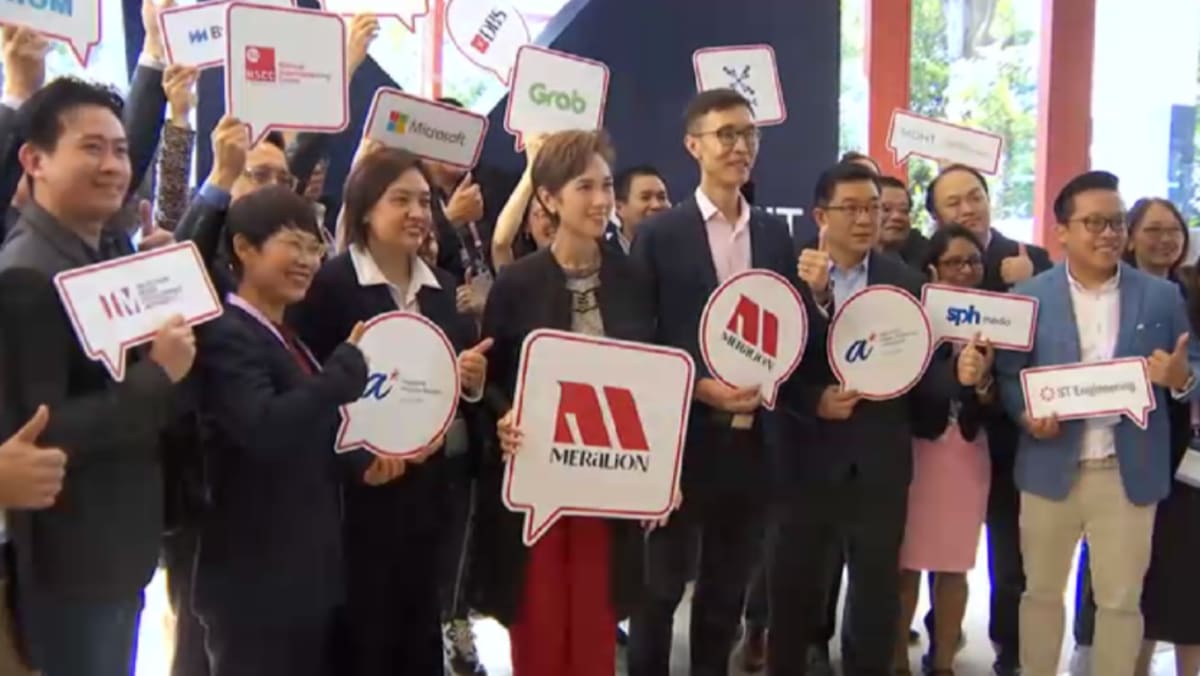The platform will focus on developing practical artificial intelligence applications including multilingual customer support, emotional insight detection and agentic decision-making systems.
Continued enhancements will allow the technology to be applied more widely across Southeast Asia, and across a variety of industries such as customer service, social work and marketing.
For example, MERaLiON could be used in elderly care by analysing emotional cues during well-being calls and alerting caregivers to warning signs for timely intervention.
Developers are exploring including Chinese dialects for future releases.
Since its initial release in December last year, the first version has been downloaded more than 90,000 times.
AI REGULATION
During the event, Mrs Teo, who is also the Minister-in-charge of Smart Nation and Cybersecurity, announced new global initiatives and collaborations to strengthen Singapore’s AI ecosystem and encourage responsible AI adoption.
When it comes to AI regulation, the minister said a “blunderbuss approach” will not serve Singapore’s interests well. Instead, she said authorities need to examine specific risks related to specific uses, before putting laws and guidelines in place.
For example, targeted measures should be taken to deal with AI being used to generate content to shape people’s views during elections, Mrs Teo added.
However, “if the AI is used to generate content used for entertainment that is generally not harmful, that doesn’t create misunderstanding for children, there is very little reason to … regulate it at the outset,” she told CNA.
“Will the time come for us to have more omnibus kind of legislation and regulation? It’s a little too early to say.”
Mrs Teo said Singapore will take a nuanced approach to regulation, backed by research, as the nation continues its efforts to align with international AI governance frameworks to ensure responsible AI development and use.
AI SKILLS AT WORK
As AI becomes indispensable in the workplace, there are also concerns that workers could lag behind.
Mrs Teo encouraged employees to take initiative to have a basic understanding of AI.
“If you’ve got a career assignment to another country, even if your work doesn’t require you to speak the local language, you’ll know that there is value in acquiring the capability to do so,” she said.
“Think of AI like that. In the new landscape of work, you are going to use AI in one way or the other. It’s good to take ownership of this challenge, to learn some basic AI skills.”
But the rise of AI will also mean increased demand for professionals with specialised skills, and Mrs Teo said Singapore will need to boost support for formalised training to support businesses’ AI needs.
She said the drive for AI adoption and innovation is strong in Singapore, despite a tense geopolitical environment where tech is seeing intense competition among major players.
“At the moment, geopolitical contestation isn’t a binding constraint,” she said.
“The momentum is very encouraging. The innovations are coming. It should motivate us to continue to expand the reach of AI to more businesses … We will ensure there is enough of the support to keep this going.”
